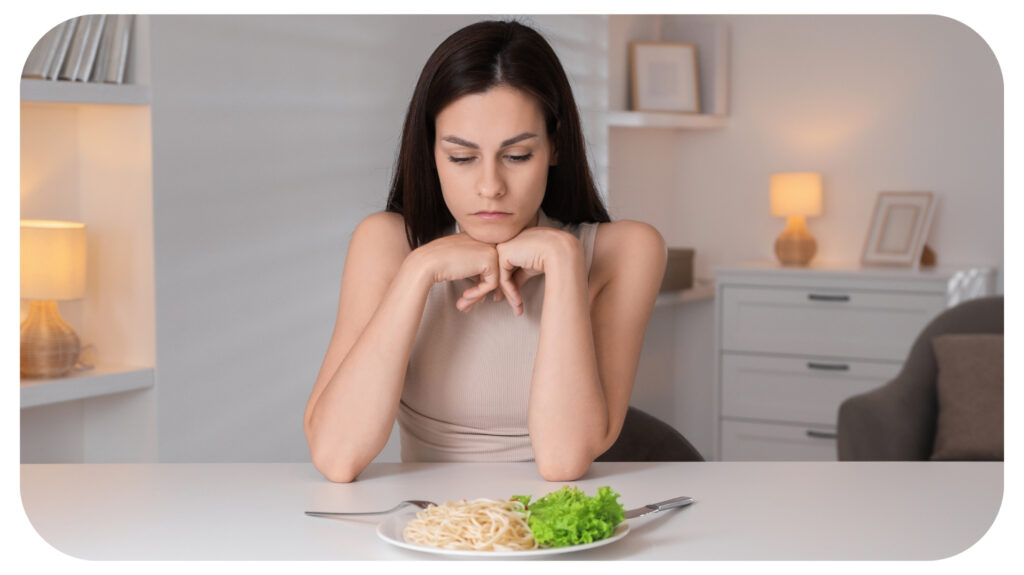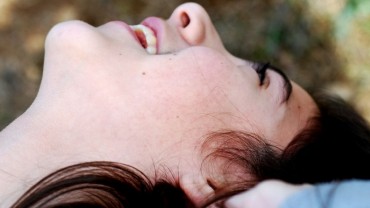11 Clear Signs You’re Not Eating Enough

Eating right, healthy, and balanced food is very essential as your food determines your health. Amidst increasing awareness about health and ideal weight management people have become very cautious and concern about their food consumption, especially calories and fat intake just to make sure their weight stays within normal range.
The awareness has created a huge wave of knowledge amongst people amidst COVID-19 pandemic in order to check their food consumption and eat healthy and right amount of food so that they could avoid common chronic health conditions such as weakened immunity, type -2 diabetes, blood pressure, heart diseases, liver diseases, gastrointestinal issues and most importantly obesity. But, the other side of the coin is also manifesting that this sudden wave of concern in people about their health and weight is making them starve too much.
They are so inclined towards their weight and body shape that they are eating right but not enough. Eating too less can be adverse for your health as well. There are many concerns that are associated with eating less food and the first one is deficiency of nutrients such as vitamins, protein, minerals, carbohydrates or fiber. The fact is yes, the information and knowledge are highlighting the fact that weight should be managed and food intake should be controlled but, eating less than the dietary value requirements per day is never made clear or totally explained.
What is Dietary Value?
Dietary value or DVs are the advised amounts of nutrients to be consumed or not to be exceeded each day. The %DV is how much a certain nutrient in one serving of an individual plate of food or dietary supplement that contributes to your regular or daily diet. Dietary reference values are the key factors of your nutrition as they provide the scientific scale on which nutrition advises are built. They are mostly used and recommended by nutrition and health experts and professionals to assess and plan a diet for every individual.
And eating more or less than %DV is considered bad eating habits or eating unhealthily which can lead to several health conditions. When you eat less that recommended DV per day in your daily diet, your body might be functioning little differently and giving your small yet clear signals that might not be comprehended by you. And over a period of time your body may manifest some serious health issues. Let’s have a brief look on the signs that you’re not eating enough:
1. Hair loss and brittle nails
One of the first and most common signs of eating way too less is excessive hair fall or hair loss and brittle nails. The reason is when you’re not eating enough food or getting enough nutrients, the highest priority of nutrient absorption by the organs is taken by the lead or primary organs of your body such as brain, heart, liver to get those instead of your hair, skin, or nails. This is the reason why you notice your physical appearance takes a serious hit when you eat less or doesn’t get the required nutrients. As hair, skin, and nails health are so closely associated to what you eat and how much minerals, protein, healthy fats, and overall nutrients your body is absorbing.
2. Constant fatigue or low energy levels
When you eat less your body gets less amount of carbohydrates and kilo calories that help your body to derive energy. As calories and carbs are the units of energy your body, when you very less and don’t eat enough calories, you’re most likely to feel tired and fatigued all the time. The energy that your body needs in a day to function and even for the body itself to move gets limited. The number of calories your body needs for these basic functions within a day of 24 hours determines your body’s resting metabolic rate. Restricting food intake to very less than 1,000 calories every day can slow down your metabolic process rate leading to fatigue and low energy levels. You may feel dizziness or sometimes like fainting.
3. Inability to conceive
When your body is not getting enough food or receiving enough nutrition, your system prioritizes on the primary processes of your body to focus on maintaining the life-supporting functions such as breathing, and blood circulation, brain functions. As a result of which sex hormone production becomes impaired which causes a significant reduction in a person’s desire for sexual activity, sperm or egg production interrupting reproductive processes which is another sign you’re not eating enough.
4. Constant hunger and feeling thirsty
When you starve yourself too much, you’re more likely to get more food thoughts which make you feel constantly hungry and even fantasize about a lavish French or Chinese dinner. You might feel being obsessive towards food sometimes. You also feel thirstier as you eat less you feel drinking less water but that dehydrated your body. In addition, your hydration levels are associated with your food intake because many of the electrolytes you get from your food affect your thirst that include sodium, potassium, and magnesium.
5. Sleeping disorder
Not only eating too much can affect your sleep quality but also eating too less can do the same. According to researches associated with human and animals, excessive starvation-level and calorie restriction causes sleep interruptions and a remarkable reduction in slow-wave sleep, which is also called as deep sleep. According to a study, restrictive diets and other eating disorders were associated to poor sleep quality and low mood as well.
6. Constipation
If you’re not eating enough, you’re already been hit constipation, if the studies aren’t wrong. People dealing with constipation have fewer bowel movements than people with no constipation as constipation people have harder stools which are difficult or painful to expel. And the reason is less intake of fiber and protein intake which is another sign you’re not eating enough. In addition to that, when you eat less for a very long time your gut and intestines becomes familiar with less expansion due to less space occupied by food as a result of which your intestines become constricted causing constipation.
7. Feeling chilled all the time
When you don’t eat enough, you wouldn’t probably be able to efficiently carry out thermogenesis, a process that helps your body to generate heat. According to research, people who have strict diet have lower body temperatures than those who don’t. Studies have shown that, women who are underweight or have low body fat might develop “downy” hair which is a way for their body to deal with heat loss. The reason is when your body doesn’t have enough body fat to produce heat for itself, it can grow lanugo (downy hair) to help trap the heat. It’s a very common characteristic in anorexia nervosa or people who are extremely thin. In addition, people who eat very less have low levels of T3 levels and T3 is a hormone that helps in increasing internal heat level among different capacities.
8. Anxiety and Irritability
Severe dieting itself leads to moodiness as outright anxiety occurs in response to excessively low- calorie intake. According to a study people who were “extreme dieters” in a survey reported high levels of depression and anxiety. However, anxiety is also seen in overweight or obese people who eat very less calories. Some people who go on a severe diet with fewer calories also experience irritability and moodiness.
9. Dull skin or skin issues
Skin is the largest organ of human body but when it comes to prioritize body prime functions on the basis of energy and nutrients, especially when your body is having less food, your organs such as heart, brain, lungs, liver win over your skin. You would experience dull skin, skin health issues such as boils, redness, dark spots, wrinkles, saggy and puffy skin.
10. Missing periods/Amenorrhea
When your body does not get enough calories, carbs and essential nutrients, you’re more likely to miss 2-3 consecutive periods which is one of the clear signs you’re not eating enough. According to health experts, absence of a menstrual cycle for two or more consecutive months is called as secondary amenorrhea, which is often a common sign that the body is not getting enough calories to support basic metabolic needs as well as the needs of one’s workout routine.
11. Cognitive issues and low productivity
If you’re on a rigorous diet and experiencing forgetfulness or brain fog, it could be a sign your body’s telling you to that you’re not filling yourself enough with nutrients. Brain fog can be a sign of several health conditions, and is a key symptom of eating excessively low throughout the day. You cannot think clearly in a day and even experience short term memory loss or forgetfulness.
Recommended For You
12 Tips for Self Pleasuring
Priyadarshini Muduli
A full time passionate writer with imperishable determination to bring healthy, smart and pragmatic changes individually and socially. Concentrate especially on lifestyle, life and personal improvement, relationships, mental health and behavior, viral issues and literature based subjects.




